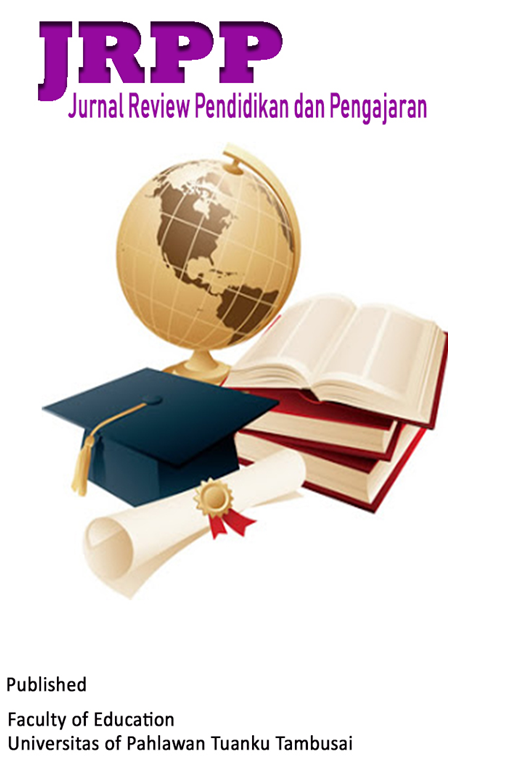Pelatihan Assembly Cadd Inventor 2021 Untuk Meningkatkan Kapabilitas Guru Pemesinan di Era Revolusi Industri 4.0
DOI:
https://doi.org/10.31004/cdj.v2i1.1253Keywords:
Pelatihan assembly CADD, Kapabilitas, Guru pemesinan, Revolusi industri 4.0Abstract
Setiap guru pemesinan harus memiliki kemampuan untuk memberikan pengalaman dalam pembelajaran yang dapat mengantarkan siswa agar memiliki kompetensi yang dibutuhkan di dunia kerja. Permasalahan yang ada ternyata masih banyak guru pemesinan yang belum mempunyai skill yang memadai terutama dalam hal pembuatan desain dan assembly inventor. Solusi yang tepat untuk meningkatkan skill guru dalam pembuatan desain yaitu dengan adanya program pengabdian masyarakat yaitu pelatihan assembly CADD. Program pengabdian masyarakat diawali dengan sosialisasi aplikasi CADD Inventor 2021 pada guru pemesinan. Pada dasarnya kegiatan pengabdian masyarakat yaitu pelatihan CADD ini bertujuan untuk memberikan keterampilan membuat desain serta assembly kepada guru pemesinan di Kabupaten Malang. Pelatihan Assembly CADD Inventor 2021 dilakukan selama dua hari yang meliputi: (1) proses persiapan pelatihan yang mencakup registrasi peserta, setelah registrasi kemudian peserta melakukan pre-test; (2) pelaksanaan pelatihan yang mencakup pembuatan desain spare part mesin oleh peserta, kemudian spare part tersebut digabung menggunakan assembly inventor 2021; dan (3) proses evaluasi. Hasil kegiatan pengabdian masyarakat menunjukkan bahwa kapabilitas peserta didik meningkat setelah adanya pelatihan CADD. Sehingga melalui pelatihan tersebut guru pemesinan dapat meningkatkan kapabilitasnya.References
Blimpo, M. P., & Pugatch, T. (2019). Entrepreneurship education and teacher training in Rwanda. Journal of Development Economics, 140, 186–202. https://doi.org/10.1016/j.jdeveco.2019.05.006.
Brevik, L. M., Gudmundsdottir, G. B., Lund, A., & Stromme, T. A. (2019). Transformative agency in teacher education: Fostering professional digital competence. Teaching and Teacher Education, 86, 102875. https://doi.org/10.1016/j.tate.2019.07.005
Capanoglu, A., & Yıldırım, K. (2015). Comparison of Conventional and Computer-aided Drafting Methods from the View of Time and Drafting Quality. Eurasian Journal of Educational Research, 15(58). https://doi.org/10.14689/ejer.2015.58.2.
Coles, E. K., Owens, J. S., Serrano, V. J., Slavec, J., & Evans, S. W. (2015). From Consultation to Student Outcomes: The Role of Teacher Knowledge, Skills, and Beliefs in Increasing Integrity in Classroom Management Strategies. School Mental Health, 7(1), 34–48. https://doi.org/10.1007/s12310-015-9143-2.
Hakan, K., & Seval, F. (2011). CIPP evaluation model scale: Development, reliability and validity. Procedia - Social and Behavioral Sciences, 15, 592–599. https://doi.org/10.1016/j.sbspro.2011.03.146.
Hakim, A. 2015. Contribution of Competenceeiruen Teacher (Pedagogical, Personality, Professional Competence and Social) On the Performance of Learning. The International Journal Of Engineering And Science. 4, 01-12.
Herppich, S., Praetorius, A.-K., Förster, N., Glogger-Frey, I., Karst, K., Leutner, D., … Südkamp, A. (2018). Teachers’ assessment competence: Integrating knowledge-, process-, and product-oriented approaches into a competence-oriented conceptual model. Teaching and Teacher Education, 76, 181–193. https://doi.org/10.1016/j.tate.2017.12.001.
Instefjord, E. J., & Munthe, E. (2017). Educating digitally competent teachers: A study of integration of professional digital competence in teacher education. Teaching and Teacher Education, 67, 37–45. https://doi.org/10.1016/j.tate.2017.05.016.
Kagermann, H., Wahlster, W., & Helbig, J. (2013). Recommendations for Implementing the Strategic Initiative Industrie 4.0. Industrie 4.0 Working Group, Germany.
Khan, N.M. 2011. Needs Assessment of University Tachers for Professional Enhancement. International Journal of Business and Management, 6 (2). https://doi.org/10.5539/ijbm.v6n2p208.
Knezek, G., & Christensen, R. (2016). Extending the will, skill, tool model of technology integration: Adding pedagogy as a new model construct. Journal of Computing in Higher Education, 28(3), 307–325. https://doi.org/10.1007/s12528-016-9120-2.
Kohler, D, & Weisz, J.D. 2016. Industry 4.0: the Challenges of the Transforming Manufacturing. Germany: BPIFrance.
Koswara., R. (2016). Kompetensi dan kinerja guru berdasarkan sertifikasi profesi (Competence and teachers performance with professional certification). Jurnal Pendidikan Manajemen Perkantoran. 1 (1), 61-71.
Lee, J., Lapira, E., Bagheri, B. and Kao, H.A. (2013) Recent Advances and Trends in Predictive Manufacturing Systems in Big Data Environment. Manufacturing Letters. Scienctific Reseach. 1, 38-41.
https://doi.org/10.1016/j.mfglet.2013.09.005
Olaleye, F. O. (2013). Improving Teacher Performance Competency Through Effective Human Resource Practices in Ekiti State Secondary Schools. Singaporean Journal of Business , Economics and Management Studies, 1(11), 125–132. https://doi.org/10.12816/0003819.
Panchal, J. H., Kalidindi, S. R., & McDowell, D. L. (2013). Key computational modeling issues in Integrated Computational Materials Engineering. Computer-Aided Design, 45(1), 4–25. https://doi.org/10.1016/j.cad.2012.06.006
Rahman, A. (2019). Restrictive versus facilitative teacher professional development: A case from three public schools in Indonesia. Asia Pacific Education Review. https://doi.org/10.1007/s12564-019-09585-1.
Romine, W. L., Sadler, T. D., & Wulff, E. P. (2017). Conceptualizing Student Affect for Science and Technology at the Middle School Level: Development and Implementation of a Measure of Affect in Science and Technology (MAST). Journal of Science Education and Technology, 26(5), 534–545. https://doi.org/10.1007/s10956-017-9697-x.
Sung, T. K. (2018). Industry 4.0: A Korea perspective. Technological Forecasting and Social Change, 132, 40–45. https://doi.org/10.1016/j.techfore.2017.11.005.
Tarhan, O. (2015). The State of In-Service Training of Teachers and Teacher Training in National Education Councils. Procedia - Social and Behavioral Sciences, 197, 378–381. https://doi.org/10.1016/j.sbspro.2015.07.152.
Tjiptady, B. C., Yoto., & Tuwoso. (2019). Improving the Quality of Vocational Education in the 4.0 Industrial Revolution by using the Teaching Factory Approach. Internasional Journal of Innovation, Creativity and Change. doi: https://www.ijicc.net/images/vol8iss1/8104_Tjiptady_2019_E_R.pdf.
Tjiptady, B. C., Yoto., & Marsono. (2020). Entrepreneurship Development Design based on Teaching Factory to Improve the Vocational Education Quality in Singapore and Indonesia, 4th International Conference on Vocational Education and Training (ICOVET), Malang, Indonesia, pp. 130-134, doi: 10.1109/ICOVET50258.2020.9230222.
Janssen, E. M., Mainhard, T., Buisman, R. S. M., Verkoeijen, P. P. J. L., Heijltjes, A. E. G., Van Peppen, L. M., & Van Gog, T. (2019). Training higher education teachers’ critical thinking and attitudes towards teaching it. Contemporary Educational Psychology, 58, 310–322. https://doi.org/10.1016/j.cedpsych.2019.03.007.
Yoto, Marsono, Suyetno, A., & Tjiptady, B. C. (2020) Teachers Internship Design to Improve Students Employability Skills in Vocational Education. 4th International Conference on Vocational Education and Training (ICOVET), Malang, Indonesia, 2020, pp. 1-4, doi: 10.1109/ICOVET50258.2020.9229902.















